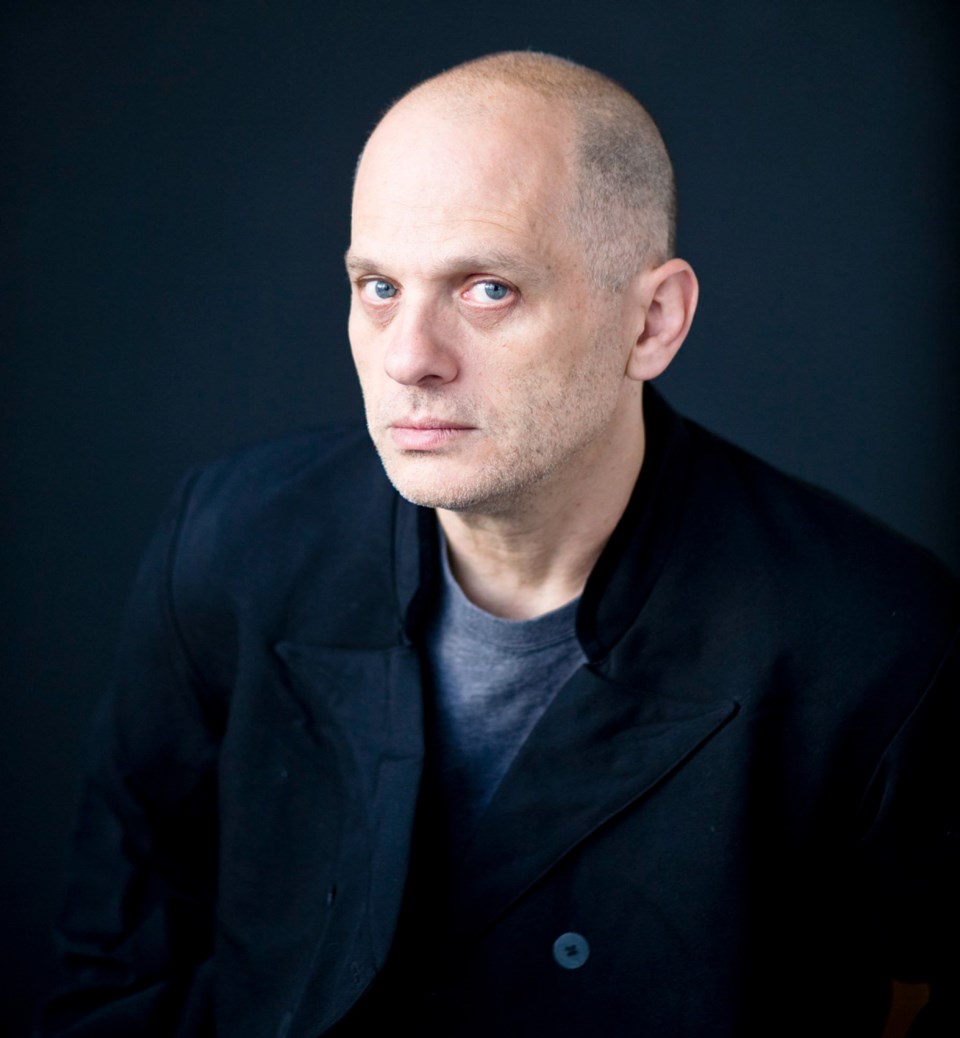In Concert
Vox Humana: Passio
When/where: Saturday, 7:30 p.m., St. Andrew’s Cathedral (740 View St.).
Tickets: Adults $20, seniors $15, 25 and under free. Online at voxhumanachoir.ca; in person at Ivy’s Bookshop and Long and McQuade
Vox Humana: The Little Match Girl Passion
When/where: Sunday, 3 p.m., St. Barnabas Church (1525 Begbie St.)
Tickets: $10, 25 and under free. (Purchasing information above.)
The Vox Humana chamber choir, directed by Brian Wismath, will celebrate the coming Easter holiday this weekend with an ambitious pair of concerts given less than 24 hours apart in different venues. Both programs are devoted to music by living composers, and each includes a large-scale masterpiece that ranks among the most significant choral works of modern times. While stylistically varied, both programs, befitting the Easter season, are spiritual in nature and stress themes of passion and suffering.
The centrepiece of Saturday’s program is Arvo Pärt’s Passio Domini nostri Jesu Christi secundum Joannem (1982). Better known as his St. John Passion, it is one of the Estonian composer’s most popular works, though it has apparently never been performed on Vancouver Island.
Drawing on a Latin translation of John’s Gospel, Passio runs about 75 minutes, though the main narrative is not divided into movements, only framed by a short introduction and a short conclusion. In Saturday’s performance, the choir, which is accompanied by an organ, will be joined by four vocalists covering the work’s six solo parts: Jesus (bass) and Pilate (tenor), who are also accompanied by the organ, and the narrating Evangelist, who is represented by a vocal quartet plus four instruments: oboe, bassoon, violin and cello.
Passio was an early monument and remains a quintessential document of the “tintinnabular” style Pärt developed in the 1970s under the influence of Gregorian chant and other early music, a style that has been dubbed “holy minimalism.” Austere, sombre, but also resonant and expressive, this music should be well served by the acoustics of St. Andrew’s Cathedral.
The main attraction on Sunday’s program is The Little Match Girl Passion (2007), David Lang’s setting of Hans Christian Andersen’s story. Lang, 56, has long been one of the most celebrated American composers of his generation — in 1987 he co-founded the New York-based composers’ collective Bang on a Can — but he reached a whole new level of popular and critical success with The Little Match Girl Passion, which won the 2008 Pulitzer Prize for music. It has been performed hundreds of times around the world, though only once before in Canada; Sunday’s performance will mark its B.C. première.
Lang summarizes Andersen’s story bluntly: “A poor young girl, whose father beats her, tries unsuccessfully to sell matches on the street, is ignored, and freezes to death.” He was drawn particularly to the entwining of opposites in this horrible and beautiful fable: “The girl’s bitter present is locked together with the sweetness of her past memories; her poverty is always suffused with her hopefulness.” Observing that Andersen draws a “religious and moral equivalency” between the Little Match Girl and Jesus, Lang conceived his setting as a Passion, and, influenced by Bach’s St. Matthew Passion, he augmented Andersen’s narrative with texts from sources including Matthew’s Gospel and the German poet Picander, who wrote libretti for many of Bach’s sacred works (including St. Matthew).
The music of The Little Match Girl Passion, which runs a little over half an hour, is spare, pristine, intimate, though its simplicity is deceptive — it is very tricky to sing, especially rhythmically. “It sounds much easier than it is,” Wismath says, “mainly because Lang has his own musical language.” This music is indeed idiosyncratic and original, even strange, but it is also undeniably compelling and emotionally powerful, and Lang’s insistence on telling Andersen’s heartrending tale in a reflective and dignified manner seems only to make the music more haunting.
The work was originally written for a vocal quartet, but Vox Humana will perform the later choral version, accompanied only by a single percussionist but also joined by dancers from the recently founded ZarYevka Ballet, choreographed by Capri Aspé. Wismath believes that this “visual connection” will make Lang’s music more accessible, and Lang himself encourages the use of sound processing, lighting, staging, and such in performances of The Little Match Girl Passion. (There have been previous performances of it with dancers, and a staged version will be mounted this summer at the Glimmerglass Festival in Cooperstown, New York.)
Both concerts this weekend will also include a set of short a cappella pieces by Pärt, Bo Hansson and Knut Nystedt, as well as Compassio, which Vox Humana commissioned for this occasion from local composer David Archer. The text for this short chorale prelude comprises only the title word, which, Archer writes, “is exploded and then reassembled with joy.”



